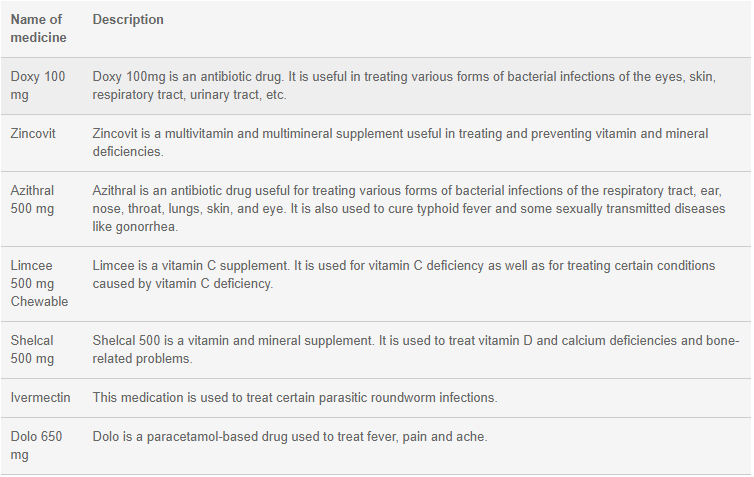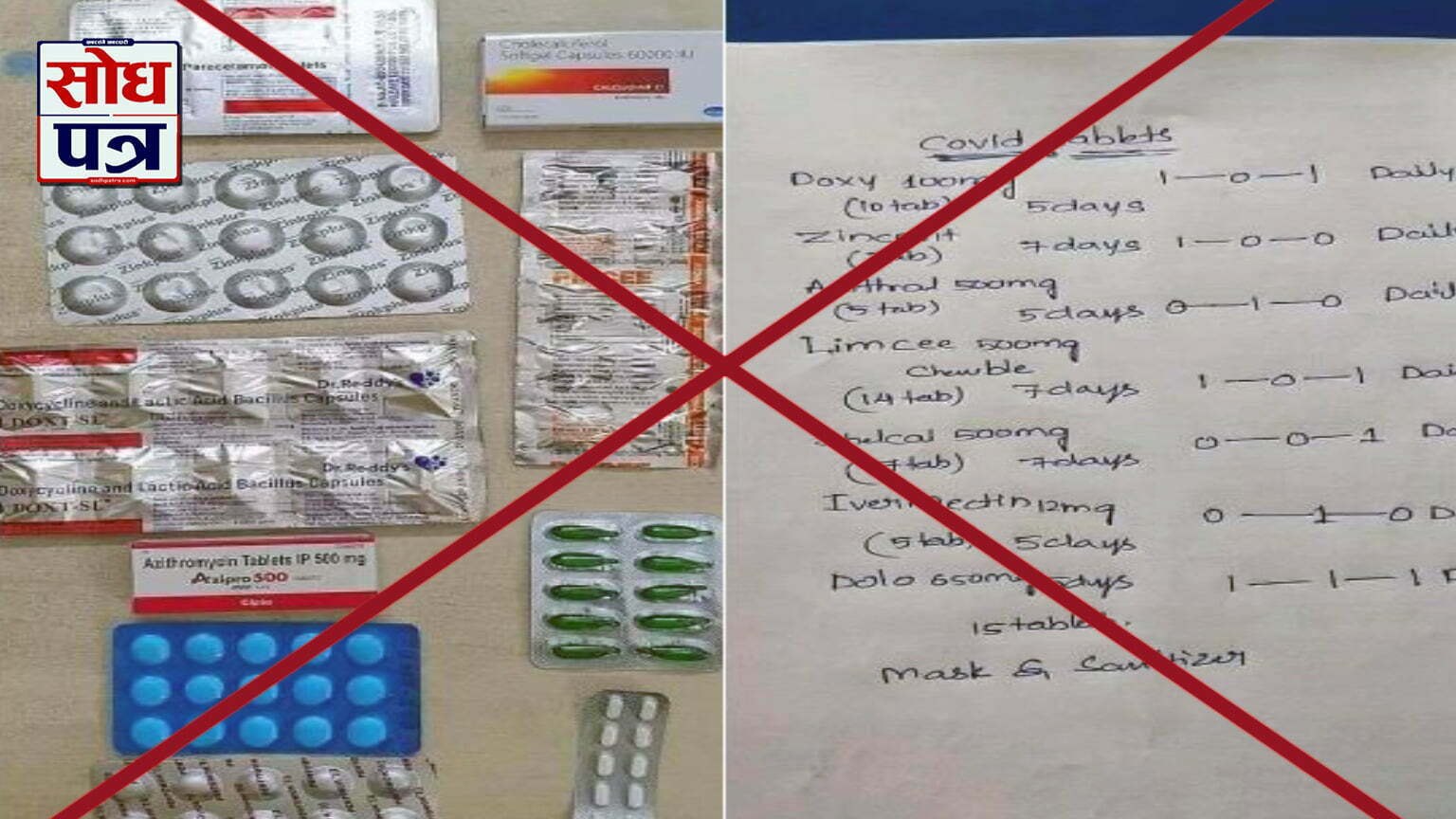KATHMANDU: As the second wave of the Covid-19 pandemic surges across Nepal with an alarming rise in infections and deaths, a huge amount of misinformation about the contagion is circulating on the internet.
Over the past few days, social media users have been sharing a picture containing blisters of various pills and capsules along with a handwritten list of medicines with a caption that they are some ‘basic medicines for Covid-19’.
The handwritten ‘Covid tablets’ list, which is circulating on Facebook and messaging apps such as WhatsApp and Facebook Messenger among others, contains the names of various medicines and recommended daily dosages.
According to Ramesh Lamichhane, the owner of Samyukta Pharmacy at Manamaiju in Kathmandu, many people have been visiting his pharmacy with the list in order to buy the medicines.
“Within a span of 3-4 days, about 6-7 people came to me with an identical list of medicines. At first I though some doctor might have prescribed them, but I learnt about its origins later when one of my relatives sent me a picture of the same list saying he found it on Facebook and asked me if the list was reliable,” he said.
Lamichhane told South Asia Check that after learning about the reality of the list, he has stopped dispensing the medicines to those who come with the list.
The list includes 7 types of medicines:

Among these, Zincovit, Limcee and Shelcal are vitamin and mineral supplements while Doxy and Azithral are antibiotics. Similarly, Dolo is a paracetamol and Ivermectin is a medicine for roundworm.
Although vitamin and mineral supplements may be useful for patients with Covid-19, their effectiveness in such patients still remains unproven.
An article published by the Harvard Medical School advises using vitamin and mineral supplements as per the prescription and suggestion of a physician.
The supplements will only help those Covid-19 patients who are infected with vitamin C, D and zinc deficiencies, according to an article in the ScienceNews. “Although complementary medicine is generally safe, it should be used according to the doctor’s advice to avoid infection, said ScienceNews.
Read this also: A supposed home remedy for boosting blood oxygen levels is unfounded
The list also includes two antibiotics. According to Healthline, an American health website, “researchers believe antibiotics can do more harm than good if taken incorrectly. They can cause bacteria to become increasingly resistant to treatment, can damage immune cells and can damage the ability of white blood cells to fight infections.”
The US-based Centers for Disease Control and Prevention (CDC), warns against unnecessary use of antibiotics saying this can make a person sicker or induce various side effects. It recommends using only the prescribed antibiotics and against using the antibiotics prescribed for others.
“These drugs can have very bad effects if taken without doctor’s advice,” Dr Arun Upreti, a resident doctor at Kathmandu-based Tribhuvan University Teaching Hospital, told South Asia Check.
“On the other hand, if everyone starts taking these medicines arbitrarily then this could cause a shortage in the market and genuine patients could suffer.
According to Dr Upreti, although it is normal to give these medicines to hospitalized Covid-19 patients under the supervision of doctors, others should not take these medicines without consulting doctors. Source: Khabarhub
















You must be logged in to post a comment.